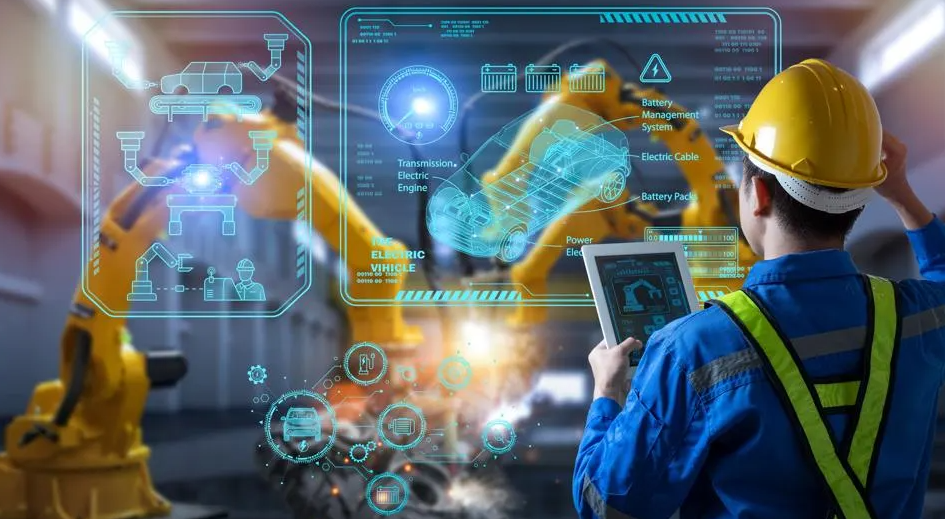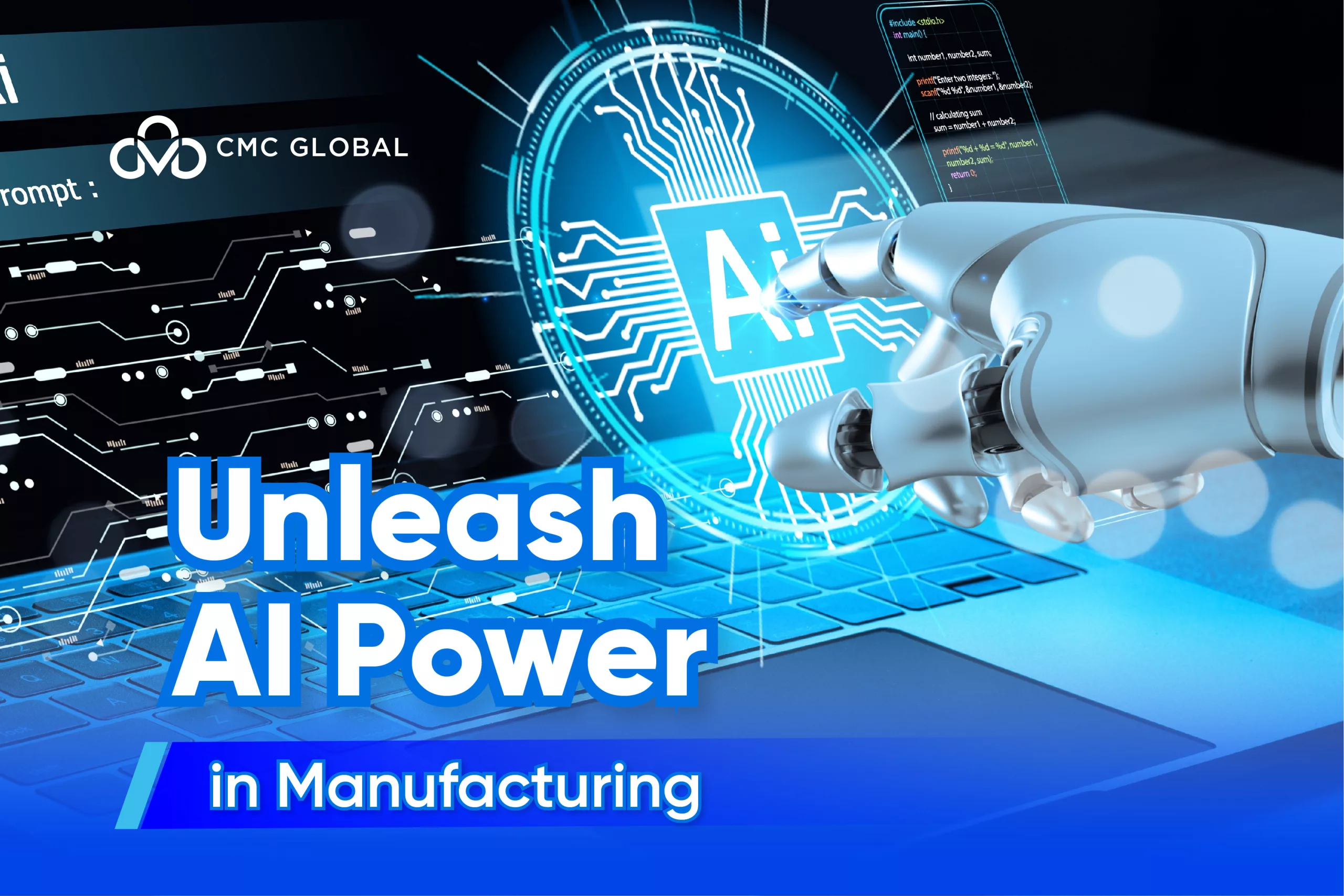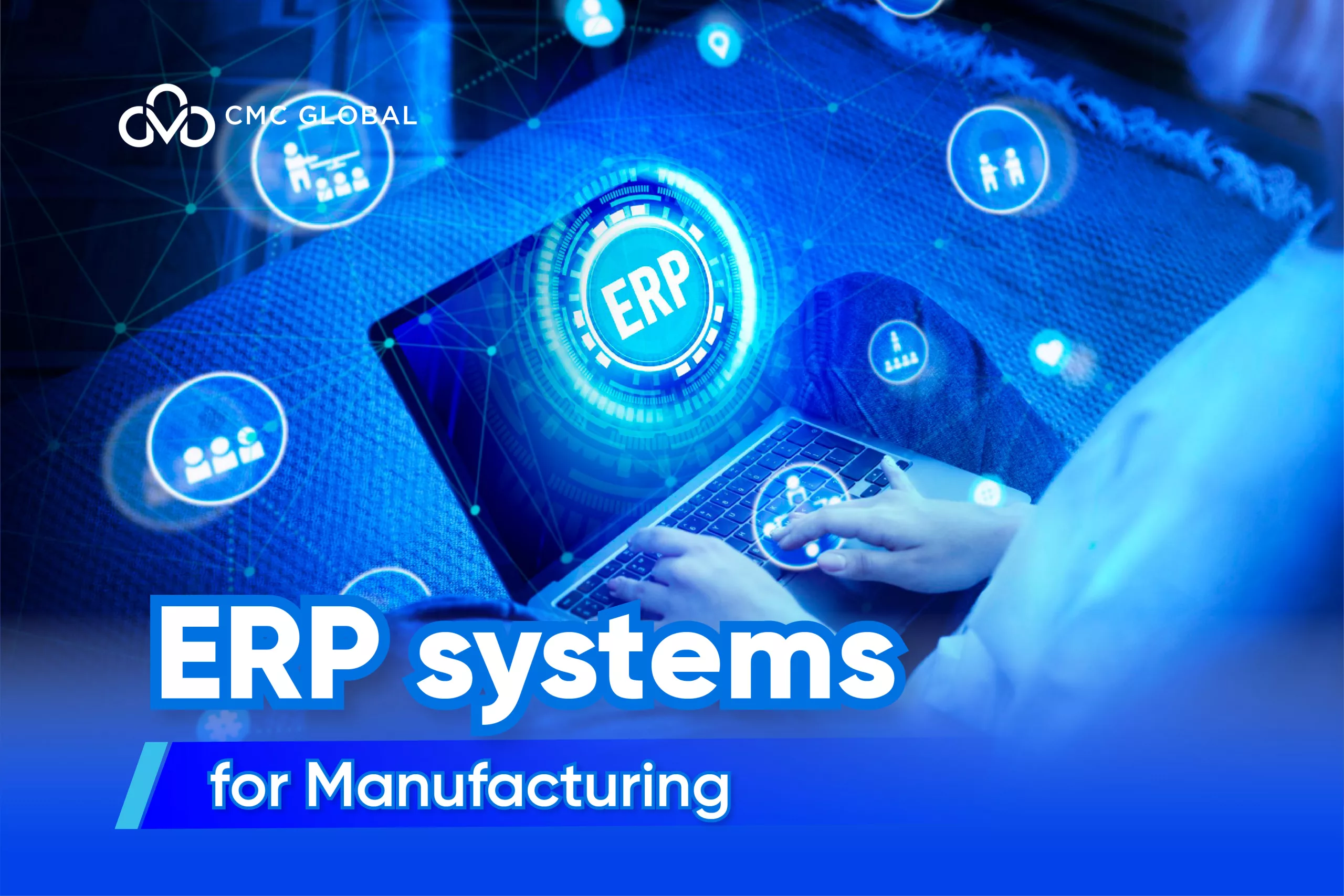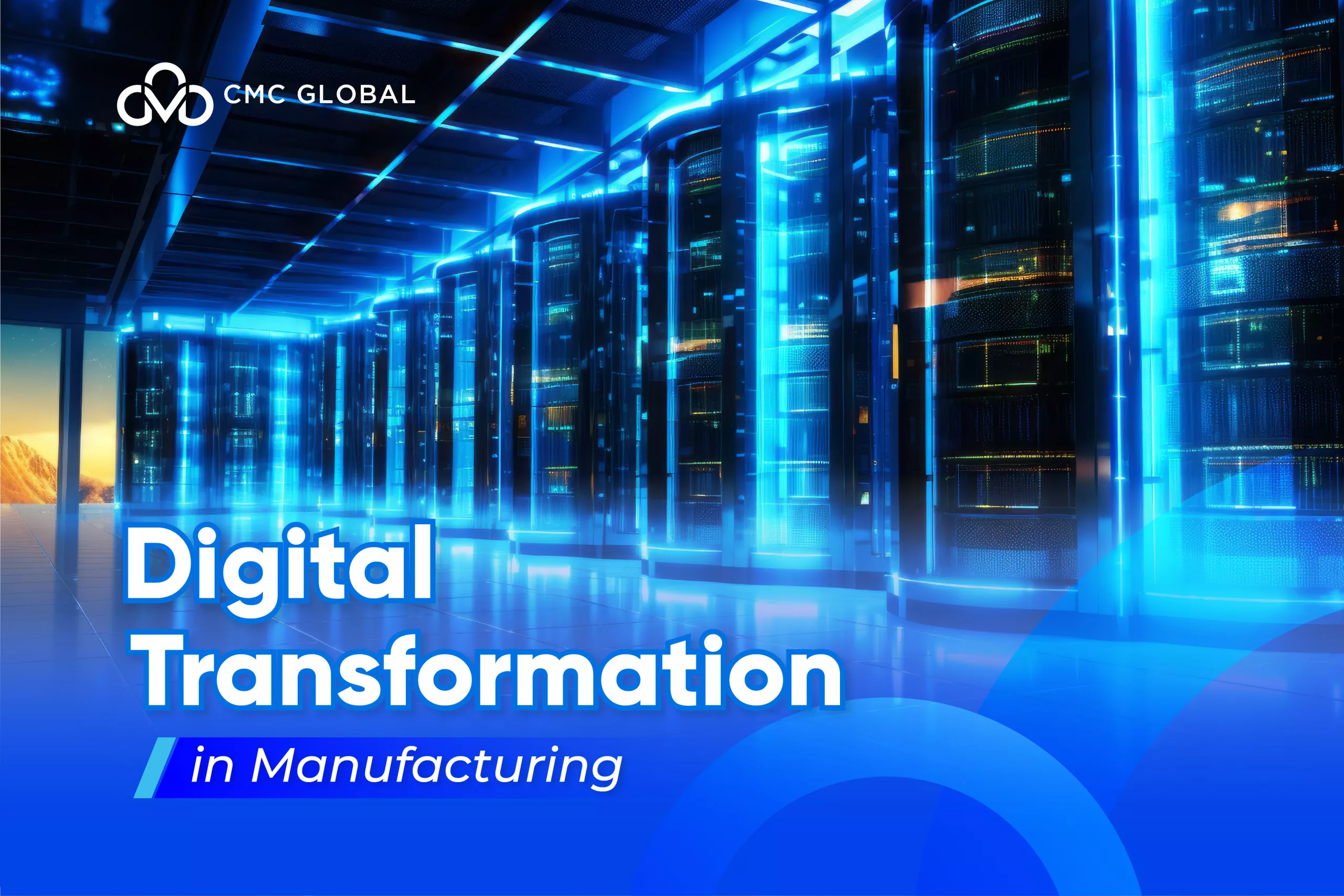The manufacturing sector is in charge of embracing digital transformation, using cutting-edge technologies such as big data analytics, artificial intelligence (AI), and robotics. The outcomes of this adoption are evident, as highlighted by McKinsey, which indicates a potential 30% decrease in machine downtime and a 10% reduction in quality-related expenses, among other benefits.
In this blog, we will look into the global market landscape concerning AI in manufacturing, along with five examples of applying AI in the manufacturing sector.
What Is AI in Manufacturing?
AI in manufacturing is the use of machine learning (ML) solutions and deep learning neural networks to refine manufacturing processes through enhanced data analysis and decision-making capabilities.
One signature application of AI in manufacturing is in predictive maintenance. Through the use of AI algorithms to manufacturing data, enterprises can mitigate machine failures more effectively, therefore minimizing costly production downtimes.
Beyond predictive maintenance, AI holds promise for various other applications within manufacturing, including enhanced demand forecasting and decreased wastage of raw materials. Given the inherent synergy between AI and manufacturing, stemming from the close collaboration between humans and machines in industrial settings, this relationship offers opportunities for optimization and innovation.
A Global Market Overview of AI in Manufacturing
The manufacturing industry, which was a pioneer in computer-based technology adoption during the 1970s, has evolved into a dominant force in AI implementation in the 21st century. Predictions suggest that the worldwide AI in the manufacturing market reached $3.2 billion in 2023 and is expected to rise to $20.8 billion by 2028.
This trend isn’t unexpected as manufacturers understand the critical importance of AI in transitioning to Industry 4.0 and establishing advanced and interconnected manufacturing processes.
5 Examples of Applying AI in The Manufacturing Market

AI Applications in Manufacturing
As the potential applications of AI in manufacturing have no limit, below are a few examples.
#1: Safe and Efficient Operations
Manufacturers, after using robots for many years, are now integrating ‘cobots’ into their factory environments. Unlike traditional robots that require separate space, cobots can work alongside humans safely, carrying out tasks such as part picking, machine operation, and quality inspections, thus enhancing overall productivity and efficiency.
Cobots are capable of tasks ranging from automotive assembly tasks like gluing, welding, and greasing to picking and packaging finished goods. AI-powered machine vision technology is important in enabling this seamless integration and operation.
#2: Proactive predictive maintenance
By employing AI to monitor and analyze data from machinery and shop floor operations, manufacturers can detect unusual patterns to forecast breakdowns.
For instance, AI can analyze data from sources like vibration, thermal imaging, and oil analysis to evaluate machinery health. These AI-driven insights empower manufacturers to accurately anticipate spare parts and consumables needs, as well as predict downtime for effective production planning. This leads to enhanced productivity, cost efficiency, and equipment maintenance.
Moreover, Generative AI can enhance these benefits by examining documents like maintenance logs and inspection manuals to offer actionable, precise information for troubleshooting and maintenance tasks.
Read more: 5 Crucial Steps for Digitizing Manufacturing in 2024: A Comprehensive Guide
#3 Autonomous Supply Chains
Using AI, machine learning (ML), and Big Data analytics, manufacturers can achieve autonomous planning. This includes continuous, closed-loop, and fully automated planning processes, ensuring consistent supply chain performance even under uneasy conditions, requiring minimal human intervention.
Additionally, industrial companies can use AI agents to schedule intricate manufacturing lines. These agents can assess various parameters to determine the optimal approach for maximizing throughput while minimizing changeover costs, therefore ensuring timely product delivery.
#4 Automate Quality Checks
AI revolutionizes testing and quality control by using image recognition to automatically identify equipment damage and product defects.
For instance, AI models trained with images of both flawless and defective products can predict whether an item may need rework, or if it should be discarded or recycled.
Furthermore, AI’s analytical power can be used to detect patterns in production data, incident reports, customer feedback, and other sources, therefore revealing areas for enhancement.
#5 Design, Develop and Customize Products
Generative AI has the potential to revolutionize product conceptualization by examining market trends, flagging regulatory changes, condensing product research, and incorporating customer feedback.
These algorithms can rapidly generate novel designs beyond the capacity of conventional methods. Consequently, manufacturers can refine product attributes such as safety, performance, aesthetics, or profitability to suit their priorities.
For instance, in 2019, General Motors utilized generative design to develop a lighter, stronger seat bracket prototype for its electric vehicles.
Crossing The Barrier For Using AI In Manufacturing With CMC Global
The manufacturing sector has long recognized the potential of AI to optimize operations, enhance efficiency, and drive innovation. However, widespread adoption has been limited by various barriers, including concerns about implementation complexity, data security, and workforce readiness.
CMC Global has been active in addressing these challenges, offering comprehensive AI solutions tailored to the unique needs of manufacturers.
Through innovative solutions and commitment to security and privacy, we are paving the way for a future where AI-driven manufacturing is not just a possibility but a reality.
Contact us for further details!




